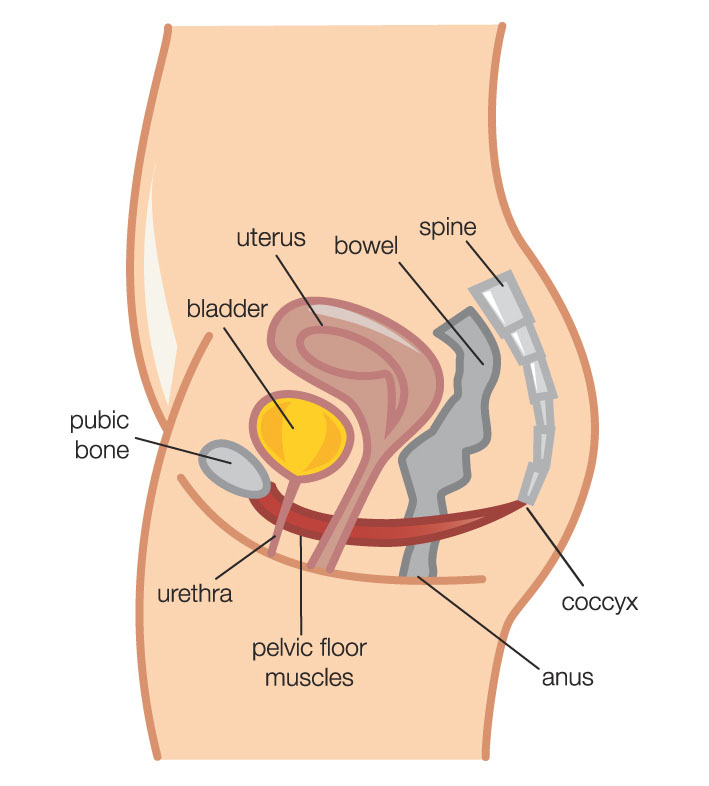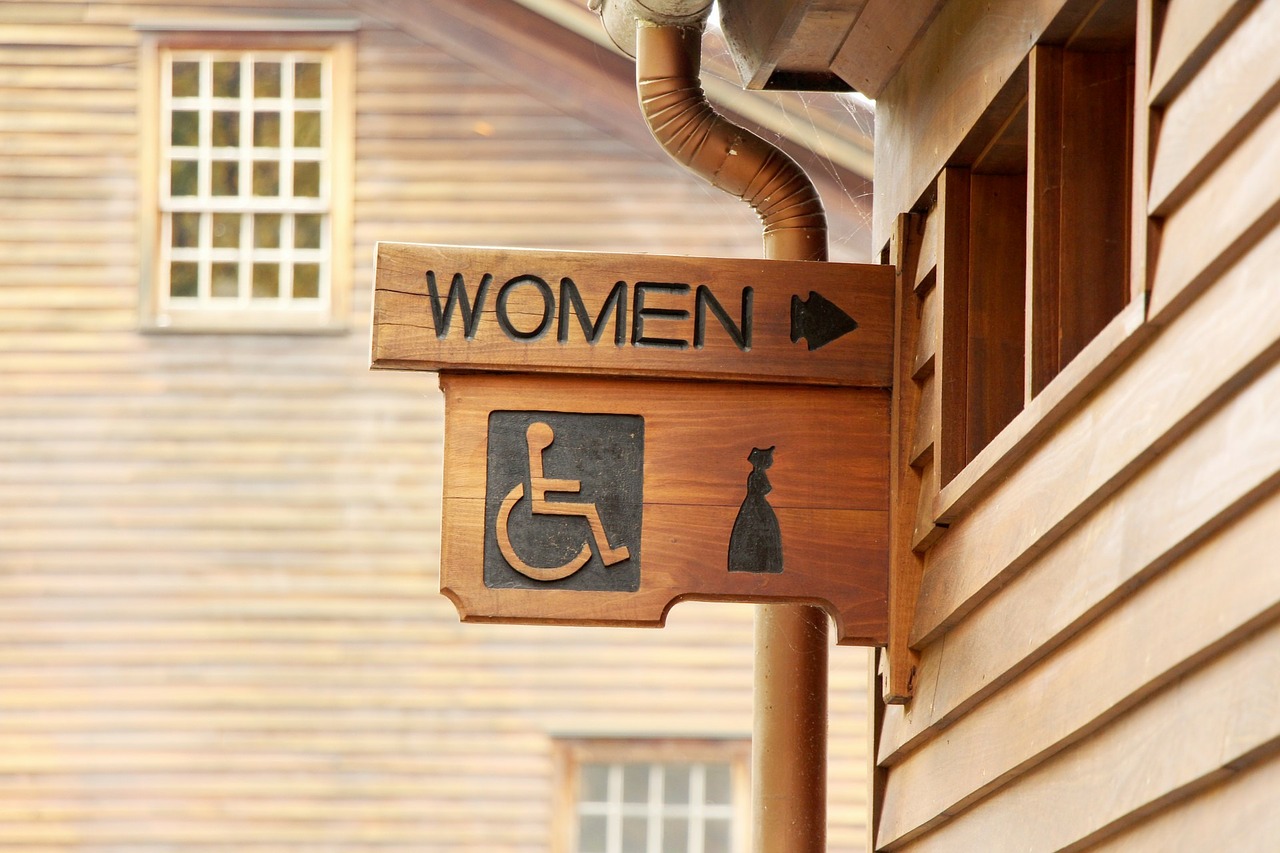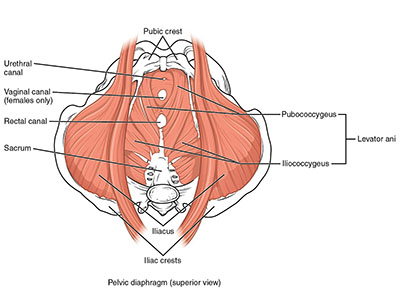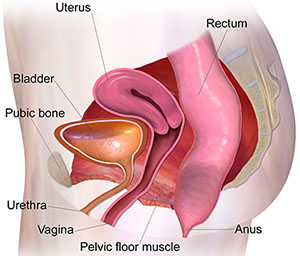

What About My Pelvic Floor Muscles?
Pelvic Floor Muscles Correction, unlike popular myths, a loose vagina does not come from excessive sexual intercourse. The size of a man’s penis also has no bearing on a loose vagina. Most men would like to believe that the size of their penis is the reason why you are loose. However, it’s not the reason. A loose vagina can be developed by numerous reasons like menopause, childbirth, and age are all factors. Strong contraction forces due to childbirth comes from your pelvic floor muscles and these are attached to the adventitia. [1] Having a loose vagina is not due to excessive intercourse; furthermore, having less sex will not make it tighter.
What Causes a Loose Vagina?
As a rule, a vagina becomes loose due to the tearing and stretching of the pelvic floor muscles. Thus, occurring on the vaginal walls as you get older or give birth. Such as, other muscles in your body. The vagina uses muscles that relax and contract. After you experience childbirth or grow older. Therefore, natural elasticity of the vaginal cavity reduces. Muscles inside a vagina are naturally elastic. For example, the muscles in your face. No matter how many times you stretch them, they always snap back into place. Unlimited attempts at this and the results will always be the same.
The vagina is usually in a rested state; however, childbirth and sex are the exceptions. Thereby, stress on the vagina can cause the cervix to become tighter and contract. When the pelvic floor muscles tear, it will lose its elasticity. In the meantime, one of the best ways to strengthen the pelvic floor muscle is with the VagaCare® exercise system. In this case, vaginal weights and kegel exercises are recommended by doctors to restore natural elasticity to the vaginal cavity. Incidentally, if you have weakened pelvic floor muscles, the VagaCare® exercise system can help restore elasticity.
Is Vaginoplasty Surgery a Safe Alternative?
There are a lot of women who feel ashamed or embarrassed when it comes to having a loose vagina. There are ways to restore your vagina to its natural elastic state without vaginoplasty surgery. Vaginoplasty surgery is a cosmetic surgery that tightens the vaginal walls. [2] This can be a very expensive option and it does have health risks associated with this medical procedure. There are other natural alternatives to restore tightness in your vagina without resorting to vaginoplasty. Vaginal weights by VagaCare® are what most women use to strengthen their pelvic floor muscle. This all-natural exercise system is a healthier and far less expensive alternative to vaginoplasty.
Are You Alone?
In particular, it’s can be embarrassing to talk about these issues. By the way, there are literally millions of women with the exact same concerns as yours. Especially, women who experienced childbirth. In the first place, talk to your medical practitioner about these issues and don’t be embarrassed. A qualified psychotherapist can also be another good outlet for support when it comes to personal matters like these. Online community forums like the LoveShack can put you in touch with other women who suffer from similar issues.
It’s Not Your Fault
Life throws us a curveball all the time. Having a loose vagina is not your fault. However, medical assistance is needed sometimes. Above all, the use of vaginal weights by VagaCare® is recommended by doctors. [3] Having a loose vagina can have a detrimental effect on a woman’s self-confidence. Hence, affecting their abilities to engage in sex. In some cases, causing unnecessary strain in their relationships. If you are a woman who is suffering from a loose vagina, buy the VagaCare® exercise system today. These vaginal weights are designed as an exerciser for weakened pelvic floor muscles.
How to Fix a Loose Vagina
Having a loose vagina is a natural occurrence in the human body caused by life events. Having your life returned to normal is as simple as purchasing your VagaCare® exercise system. Use your vaginal weights on a daily basis along with kegel exercises to improve tightness in your vagina. Remember that you are not alone, this natural phenomenon affects millions of women just like yourself. If you are serious about improving conditions “down there” and want to feel better about yourself? Take the first step and purchase your VagaCare® exercise system now and be on the road to recovery.
References:
- Lipshultz L, Bitzer J, Goldstein A, Pastuszak A, Giraldi A, Perelman M, Lipshultz L (2016). “The Female Sexual Response: Physiology and Anatomy of Sexual Orgasm, Desire, and Arousal in Women”. Springer New York. p. 202.
- Gundeti, Mohan (2012). Reconstructive and Pediatric Robotic Urology a Comprehensive Guide. Wiley-Blackwell.
- Retrieved from: https://blogs.webmd.com/womens-health/2009/07/vaginal-weights-for-stress-incontinence.html August 21, 2018.
Discreet Shipping
From Venice Florida
Customer Support
support @ vagacare.com
Mon - Fri: 9:00 - 5:00
941-445-6005 | Online 24/7
Site Links
Account Links
Why Shop With Us
* 100% Discreet Shipping
* Secure Shopping
* Trusted for 12 Years
* No Catalogs Mailed to Your Home
* Real People That Care About You
Call: 941.445.6005
© COPYRIGHT 2006-2018 VagaCare® an Affiliate of Medgo® LLC. ALL RIGHTS RESERVED.
Our Healthy products are not intended to diagnose, cure or prevent any disease.



